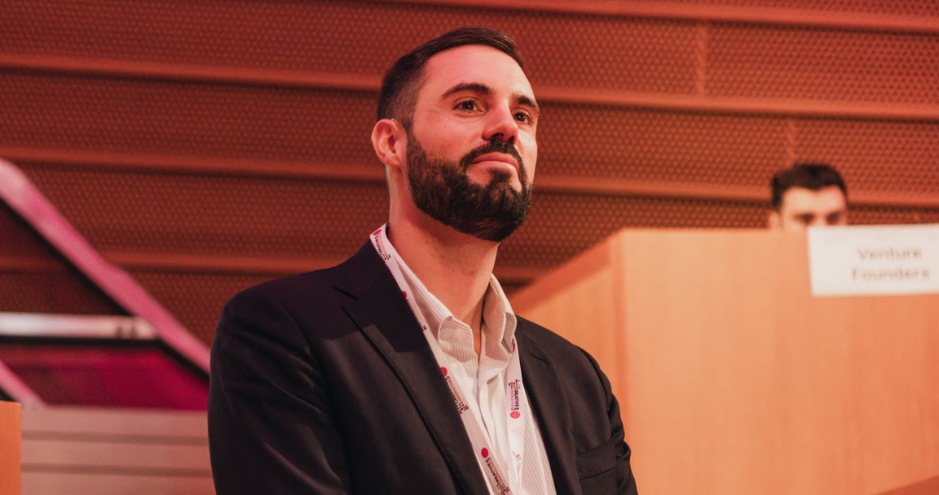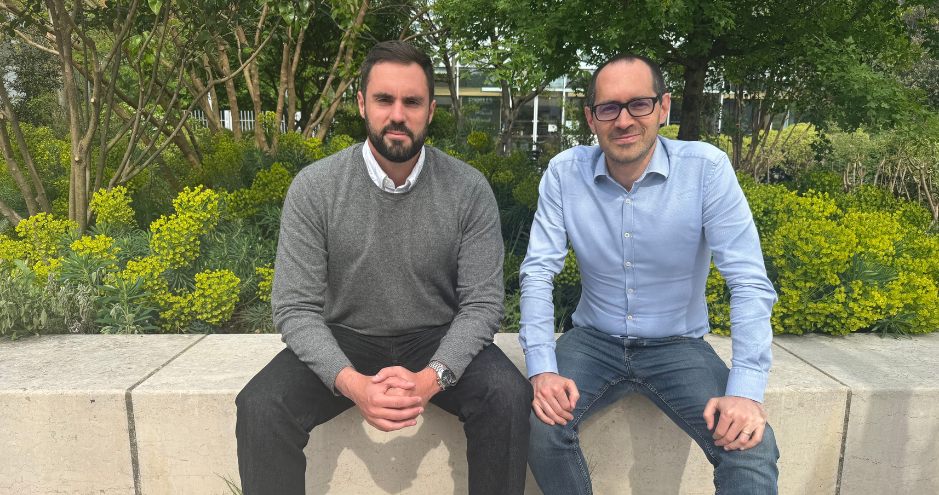Neurobus: Frugal AI Serving Defense and Aerospace
Combining Deep Tech and Sustainability is the winning bet of Neurobus, an innovative startup founded by Florian Corgnou, an entrepreneur whose successive periods at HEC Paris have greatly impacted Neurobus's trajectory.

Aerospace, a Core Sector
Initially destined for an engineering career in aeronautics, Florian's trajectory gradually shifted toward entrepreneurship and the business world, a change accelerated by a significant period in the United States. Following this, his desire to engage with cutting-edge technologies drew him to Tesla's European headquarters in the Netherlands for his first experience. Though formative and inspiring, this experience ultimately led Florian to make a 360-degree turn. The engineer departed from his favored sector, becoming an entrepreneur in an unexpected field: finance.
With Trezy, his startup, SME managers could monitor their company's financial situation in real-time. The venture proved successful, raising 3.5 million euros and continuing to operate today. Yet, despite Trezy's success, Florian felt compelled to invest in a more meaningful project, one within a field that genuinely excited him.
Aerospace beckoned him once more. It was there, while participating in a space entrepreneurship program in partnership with Airbus Defense & Space, that the idea for Neurobus began to germinate.
Neurobus, a Solution that Combines Energy Efficiency and Intelligence
By observing technological advances at Tesla and SpaceX, and then participating in the Airbus Defense Space program, Florian established the groundwork for Neurobus. Immersion with engineers and space experts allowed him to pinpoint market trends and unmet needs, needs Neurobus was determined to address.
So, what does Neurobus offer? It's an embedded, frugal Artificial Intelligence – specifically, an AI engineered for minimal energy consumption and direct integration into host systems like drones and satellites. Data processing occurs locally, eliminating the costly energy expenditure of transferring data to centers.
Neurobus's initial focus was the space sector, a field inherently linked to defense, with partners like Airbus Defense and Space, the European Space Agency, and the French Space Agency. However, the company adroitly adapted its promising technology to the drone sector, a rapidly expanding market with more immediate demands. Winning a European defense innovation competition further validated the potential of their solution for drone detection.
The core of Neurobus's innovation lies in its biologically-inspired approach: the neuromorphic system. This disruptive technology draws inspiration from the human brain and retina to create processors and sensors that are remarkably energy-efficient. For Florian, the human brain serves as an unparalleled source of inspiration:
"The brain is one of the best computers that exists today because it delivers immense computing power with extremely low energy consumption."
Drones: A Tested and Validated Field of Application Tested and Validated
Neurobus sidesteps the capital-intensive manufacturing of components like processors and sensors. Instead, its value proposition lies in assembling these components and developing tailored software layers to meet specific manufacturer needs. This positions the startup as both an integrator and a software publisher, streamlining the adoption of this cutting-edge technology.
As Florian Corgnou explains, "Neurobus operates precisely between the manufacturer and the industrialist. We don't create the hardware, but we assemble it into a product that specifically addresses our customers' requirements and develop software layers that cater to the unique applications of that industrialist."
Though Space remains a core sector for Neurobus, its technology's practical application in the drone sector unlocks compelling possibilities for autonomy. Drones equipped with Neurobus's frugal AI can execute missions more independently, making real-time decisions with minimal human oversight. While human validation remains crucial for strategic actions, tasks like area surveillance can be managed autonomously.
For instance, a drone could autonomously evade an oncoming object at high speed. However, directing itself toward a target would require prior human authorization.
Although the present application is primarily focused on defense, driven by the current geopolitical climate and pressing demands, Neurobus also foresees a future in the civilian domain, particularly in applications like autonomous drone delivery services.
Overcoming Challenges, Step by Step
Like any entrepreneurial venture, Neurobus faced its share of challenges – challenges Florian embraces. As he notes, "The biggest challenge was securing our market within a limited timeframe and on a tight budget." A dual problem indeed.
Identifying the ideal market for a disruptive technology proved difficult. After considering the automotive and space sectors, both with lengthy integration cycles, Neurobus found its niche in drones.
Financially, Florian acknowledges the perpetual challenge for startups: "Financial resources are the lifeblood of any venture, and as a startup, we're constantly in survival mode."
However, Neurobus distinguished itself through its initial financing strategy. Rather than immediately pursuing fundraising to convince investors of a nascent technology, Florian prioritized securing R&D contracts with clients. "Having already gained institutional and industrial validation in previous roles, I ensured clients financed the R&D, guiding us toward the optimal applications."
Another inherent difficulty with disruptive technologies is their vast potential scope. Florian stresses the importance of discipline: "In Deep Tech, it's easy to get lost – a trap we all fall into, myself included!" While the technology's versatility is tempting, the real challenge lies in identifying the application offering the greatest business and technological value. "You must focus, master a single use case, execute it flawlessly, and avoid spreading yourself too thin," he advises.
This strategy is paying dividends, with R&D contracts generating roughly €600,000 in revenue in 2024, excluding public subsidies. The team, currently composed of two partners and three employees, plans to expand to approximately ten members by June through four new hires.
With this traction and a refined roadmap, Neurobus is planning an ambitious fundraising round of €5 to €10 million by year-end to initiate the conceptual phase – developing the final product based on client feedback.
HEC Paris, the Common Thread of the Neurobus Adventure
Would Neurobus be where it is today without Florian's HEC Paris experience? Unlikely. While launching Neurobus, Florian simultaneously pursued HEC Paris's Executive Master of Science in Innovation & Entrepreneurship (EMSIE) to "gain support and surround myself with expertise." This, combined with Neurobus's participation in the Incubateur HEC Paris and Creative Destruction Lab (CDL) - Paris, provided a framework and strategic guidance instrumental in shaping Neurobus's trajectory. The Challenge+ program further honed the team's skills.
Mentors from these programs challenged the company's direction and refined its strategy. "The Incubator team provided invaluable assistance in finalizing complex client contracts," Florian explains, "and the CDL mentors challenged us on critical issues. This external perspective enabled us to ask the right questions and minimize mistakes."
Finally, Florian shares advice for aspiring Deep Tech entrepreneurs:
- Validate your idea with customers before seeking funding.
- Securing a paying customer – a champion and internal advocate – is the best possible validation.
- Develop a true 'customer obsession' to deeply understand your clients' needs and confirm their willingness to pay upfront."
This customer-centric approach has fueled Neurobus's success, and we eagerly anticipate following their future achievements.




